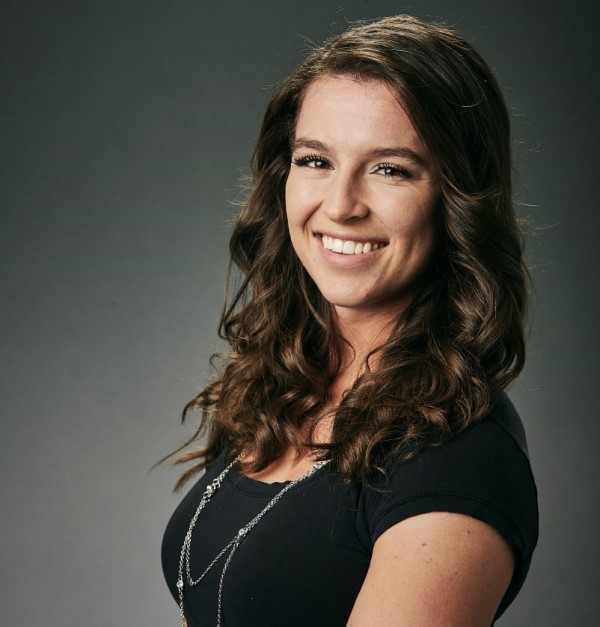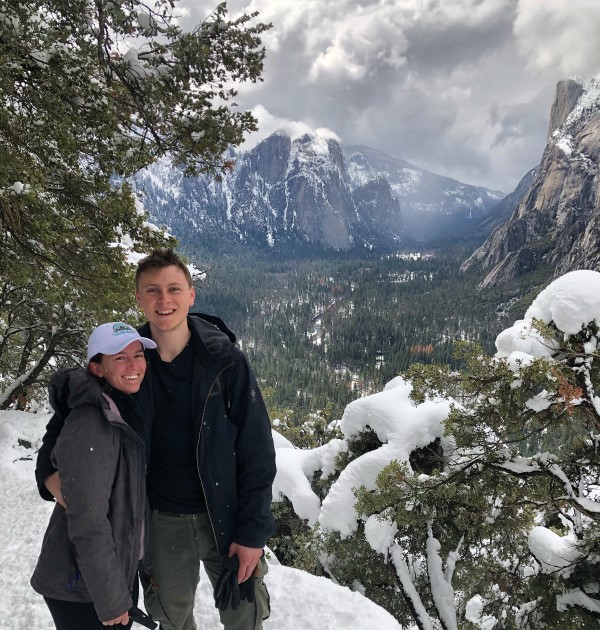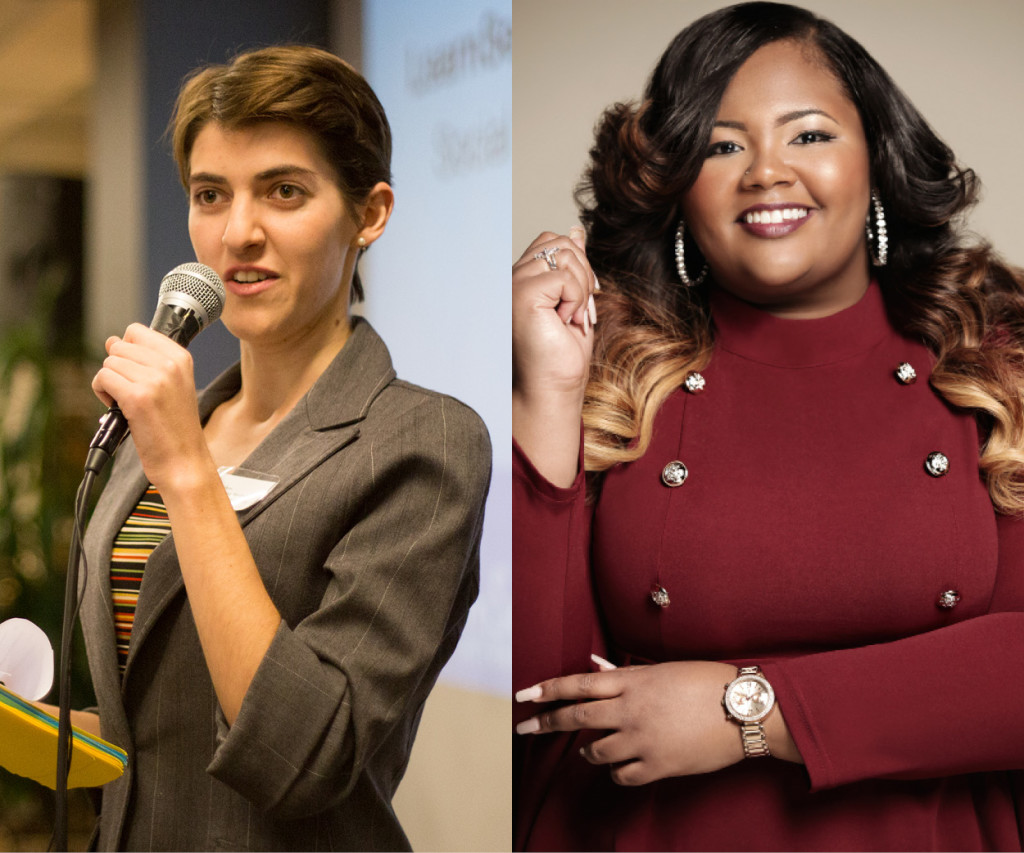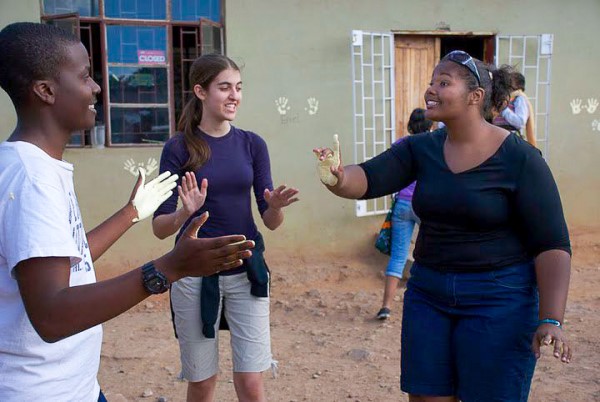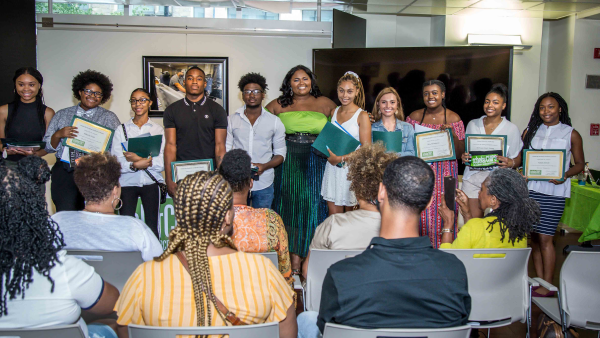Written by David Trigaux, Program Director of the Washington Urban Debate League
The COVID 19 pandemic derailed the school year mid-semester. Teachers were given a single weekend’s notice in some instances that they were going online on Monday, schools scrambled to address the digital divide, and many students were lost in the shuffle or just gave up on the semester amid the chaos. Dire warnings about learning loss and exacerbating opportunity gaps fly fast and frequent, with few structural solutions in sight as the school year ends and we start looking towards the fall. This chaos has been magnified by the disproportionate impact of the virus on the black and brown members of the greater Washington community and the ongoing protests (and the government response) against racial injustice and police brutality, especially here in D.C.
It’s been a tough few months for the D.C. community, but I’m here today to share a bit of good news: a pair of intrepid young middle schoolers, representing a tiny D.C. charter school, overcame the steep odds and the pivot online amidst the pandemic and won a national debate championship.
Eighth graders David Sipos and Samantha Perkins of Inspired Teaching Demonstration School were among the 6 partnerships (from Capital City [x2], EL Haynes, Washington Latin, and Benjamin Tasker) that qualified to represent the Washington Urban Debate League (WUDL)* at the Urban Debate Middle School National Tournament in May 2020. Originally scheduled to be hosted in Tulsa, Oklahoma this season, the national tournament was one of the first in the country (and one of the few national competitions of any kind) to pivot online and actually happen this spring, giving at least a few young people the culminative experience they’d worked so hard to achieve all year.
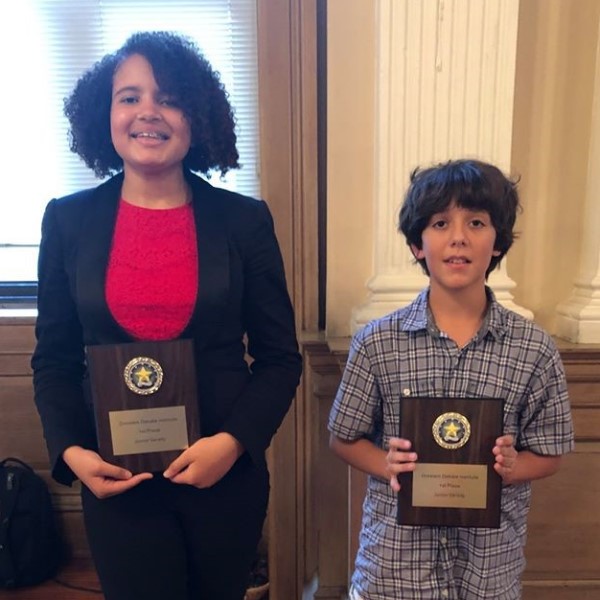
Samantha Perkins and David Sipos at the Ornstein Summer Debate Institute Summer 2019. They won first place in the JV Division despite only being in middle school
The WUDL qualifiers hardly missed a beat, shifting to online preparation sessions with their coaches and our Program Coordinator, Dara Davis, several times a week on top of their schoolwork and all the turmoil that was April. This year’s topic was global arms sales, with students considering questions of national security such as the wars (and human rights situations) in Yemen, Ukraine, and beyond. While a different WUDL program (Kenmoor Middle School) took home the top prize at least year’s Middle School National Tournament, the number of competitors more than doubled this year, and we did not have realistic aspirations of repeating the title. We asked each qualifying pair what their goals were, and most simply said that they wanted to win more rounds than they lost, or at least not embarrass themselves.
The tournament was the first event of its kind that any of the participants had attended before. Normally, students (in this case, from around the nation) would gather at a school or university, toting laptops and tubs of evidence to debate a timely question of public policy. Tournaments are highly social events, with students laughing and joking in the hallways and having serious discussions about some of the biggest questions (often with more sophistication than some political leaders). The normally lively and exciting atmosphere was replaced by a student’s home and the quiet of spending most of a weekend online, debating and chatting with friends and competitors alike via Zoom.
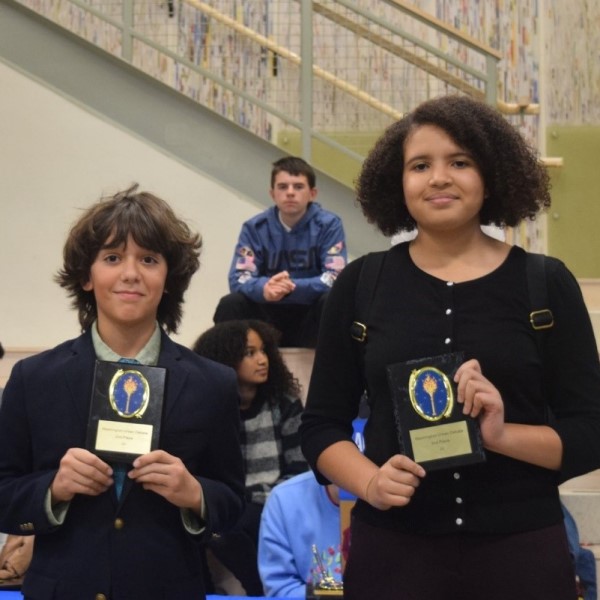
David and Samantha at a local WUDL tournament at DC International in Fall 2019, winning trophies, as usual.
Through the early rounds, Samantha and David did well, defeating teams from Kansas City and Brooklyn before lunch on Saturday, but they hadn’t faced powerhouse teams from Harlem or Boston yet. Helping administer the competition, I didn’t get a chance to check in with them again until the awards ceremony that evening, where they expressed cautious optimism. As awards were announced, David and Samantha were undefeated through preliminary rounds. David was named the nation’s 7th best individual speaker, (out of 72 national qualifiers, and thousands more who didn’t qualify) and they advanced to elimination rounds, along with 5/6 of the WUDL qualifiers. We were extremely proud and pleased.
On Sunday, they entered their second straight long day online — after 11 hours of screen time the previous day! Round after round, they presented their arguments before panels of experienced judges from around the nation and defeated highly lauded teams from Tulsa and New York before coming face to face with close friends Joey Villaflor and Jener Balk from Capital City (also a WUDL school). Joey and Jener had defeated teams from Tulsa, Kansas City, and Boston in route to the final round, a familiar re-match that had occurred many times at local competitions here in D.C. On a split decision, presenting before a panel with more than 50 years of combined debate expertise from around the nation, Samantha and David prevailed, bringing home the national championship to their school and the WUDL once again!
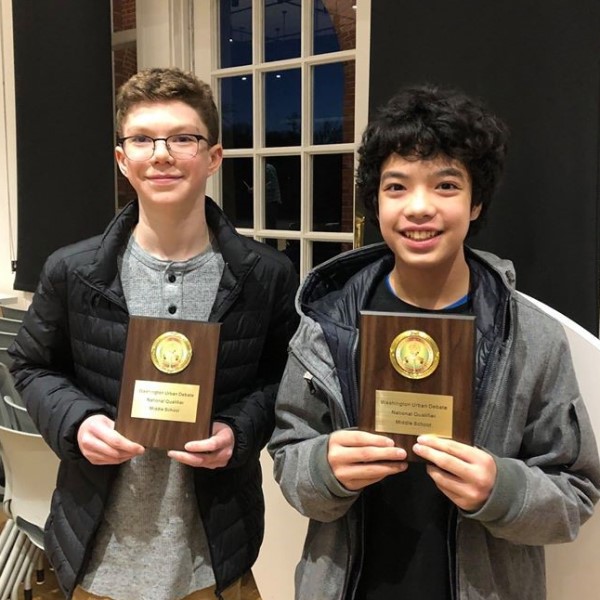
Jener Balk and Joey Villaflor of Capital City, the national runner ups at Middle School Nationals this past year, seen at a tournament in December 2019
The WUDL partnered with Inspired Teaching to start a debate program three years ago, but the program took a huge step forward this year. Founding members David and Samantha partnered with new coach Maggie Meiman (George Washington, Class of 2020) to dramatically expand the size of the team and decided to get serious about achieving some competitive success this season. The pair were the top middle school team at the Ornstein Summer Debate Institute** last summer, and didn’t let up all season, eventually leading their squad to win a series of regional awards, including Best Middle School Team, Best Middle School Debaters, and more.
National titles are exciting, but the trophies are a big shiny signal about the learning and personal growth occurring along the way. Peer reviewed research tells us that participation in Urban Debate significantly improves the traditional academic measures of success that we look at such as grades, test scores, graduation rates and admission to selective high school magnet programs and elite universities. (This year’s class includes freshmen at Georgetown, GW, Howard, Duke, and a number of other elite universities.) Beyond the numbers, I’ve seen these young people learn to harness their thoughts and learn to express incredibly complex ideas with the dexterity of advocates many years their senior. The intellectual confidence, poise, and leadership I’ve seen them develop are portable skills that will serve them well for the rest of their lives. The growth these two phenomenal young people have shown over the past year is exactly what makes me excited to go to work every day.

About half of the Inspired Teaching Demonstration School (ITDS) Debate Team, including Samantha and David, between rounds earlier this spring.
Online debate was highly successful, beyond our hopes, and the lively atmosphere is largely replicable online. More than 40 WUDL debaters and a strong cadre of family members and teachers joined to cheer on their league-mates, and new friends were made across the nation. The medium presented some unique benefits, such as Inspired Teaching Principal Seth Biderman being able to hop on and watch his student’s success as they advanced through elimination rounds on Sunday.
We are excited about the upcoming Ornstein Summer Debate Institute, and this coming year’s very timely topic, Criminal Justice Reform. Many of our students are passionate about what’s going on in the world around them (Samantha and David skipped a major competition last year to attend the Climate protests with Greta last fall, and I’ve seen many in the streets protesting the last few weeks), and this topic will help them hone their advocacy skills further.
The story of this tournament wouldn’t be complete without a huge THANK YOU to all of the members of the WUDL community that helped out and assisted with the tournament, either helping prepare students to compete by watching practices, or as judges during the tournament: Darrian Carroll, Eric Clarke, Michael Fuentes, Arielle Giordano, Ny Glover, Wil Hawk, Selah Lee-Bey, Alex Pappas, Raffi Piliero, Renee Reneau, Andrew Samuelson, and Zoe Spielvogel. I’d also like to give a huge shout out to our Program Coordinator, Dara Davis, for leading our prep sessions for the competition.
*The Washington Urban Debate League is a local non-profit (and Catalogue for Philanthropy Partner) that supports debate programs at public schools in the D.C. area. Only 5 years old, the WUDL has grown quickly to work with more than 40 local schools and thousands of local students each year. All our programming is 100% free for students and schools.
**The institute is hosted by the Washington Urban Debate League and the Matthew Ornstein Memorial Foundation every summer and is free for any D.C. area public school student in middle or high school. Registration is open now for this year’s summer institute, hosted July 20th- August 1st, 2020, online.
About the Author: David has been teaching debate and/or working in politics for 15 years. He’d love to tell you more about the WUDL and how you can get involved. David.Trigaux@UrbanDebate.org

